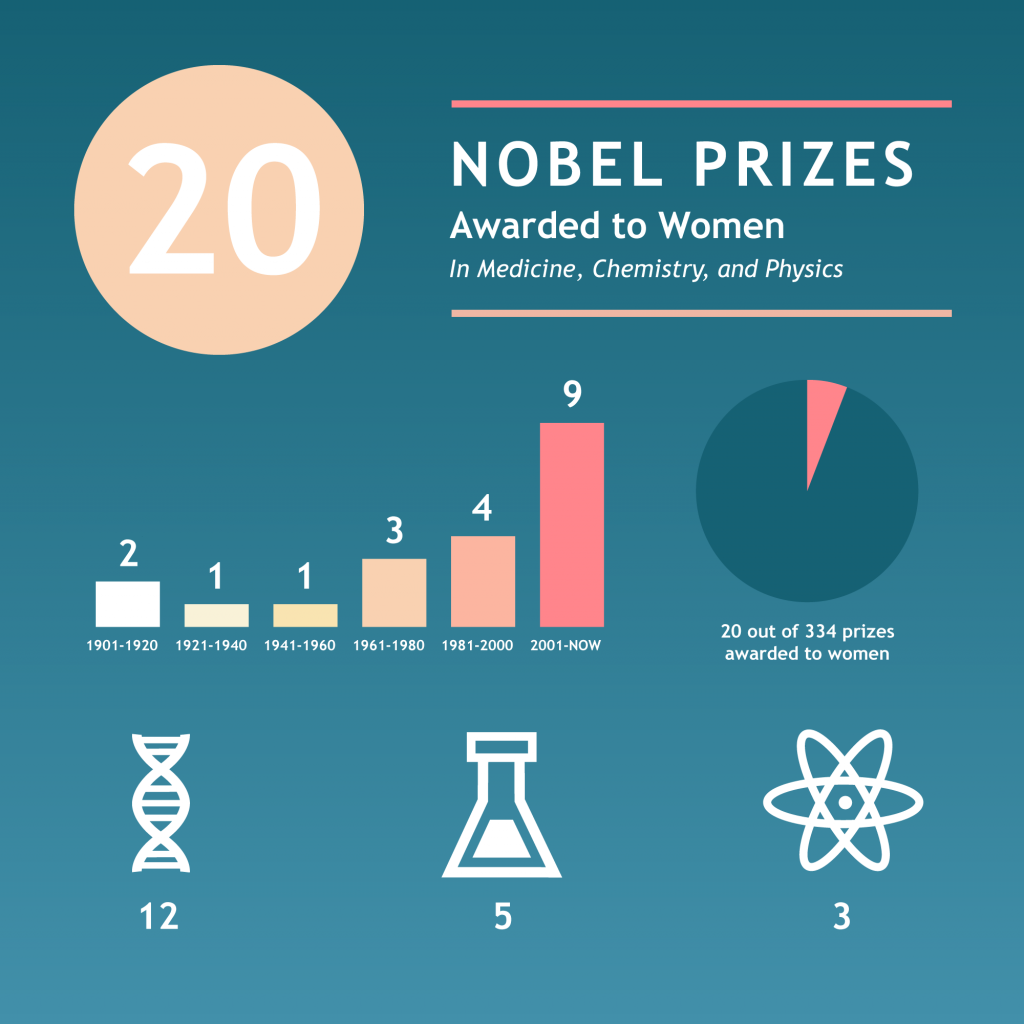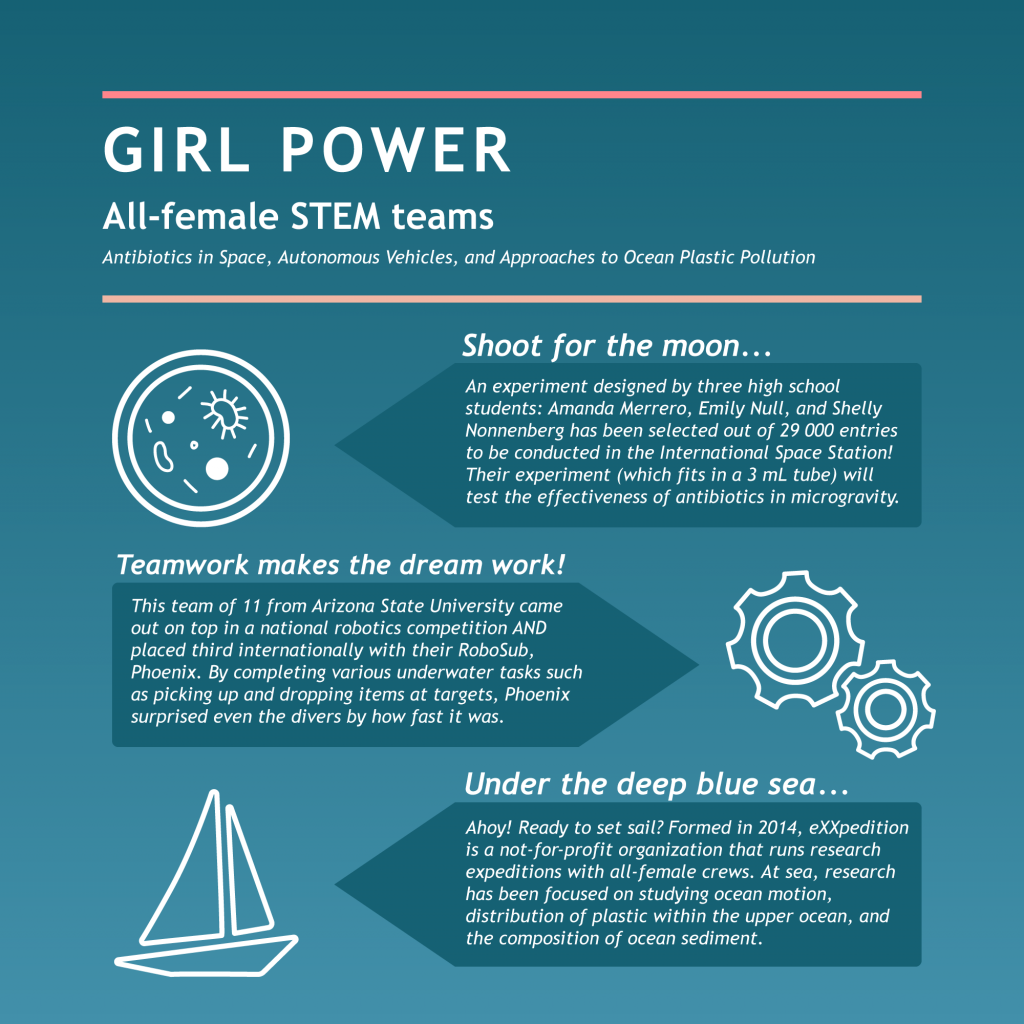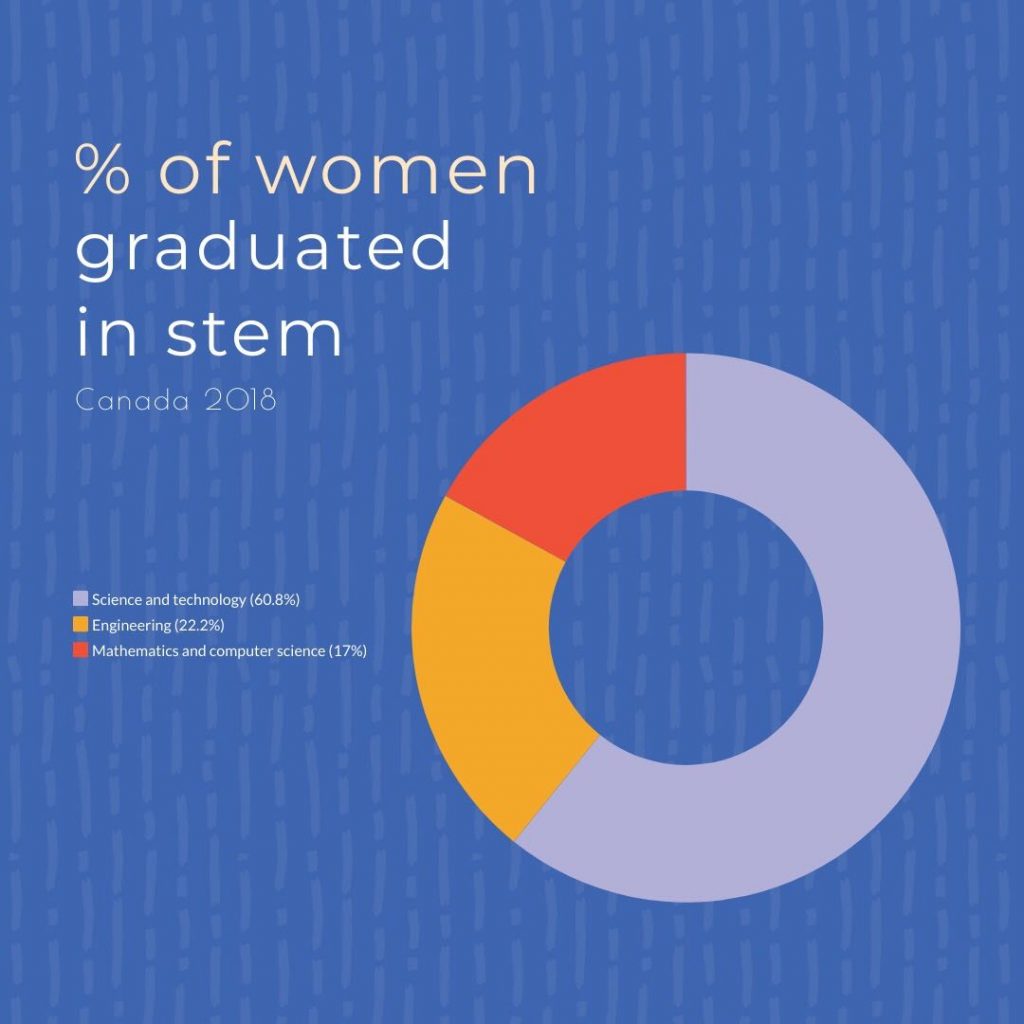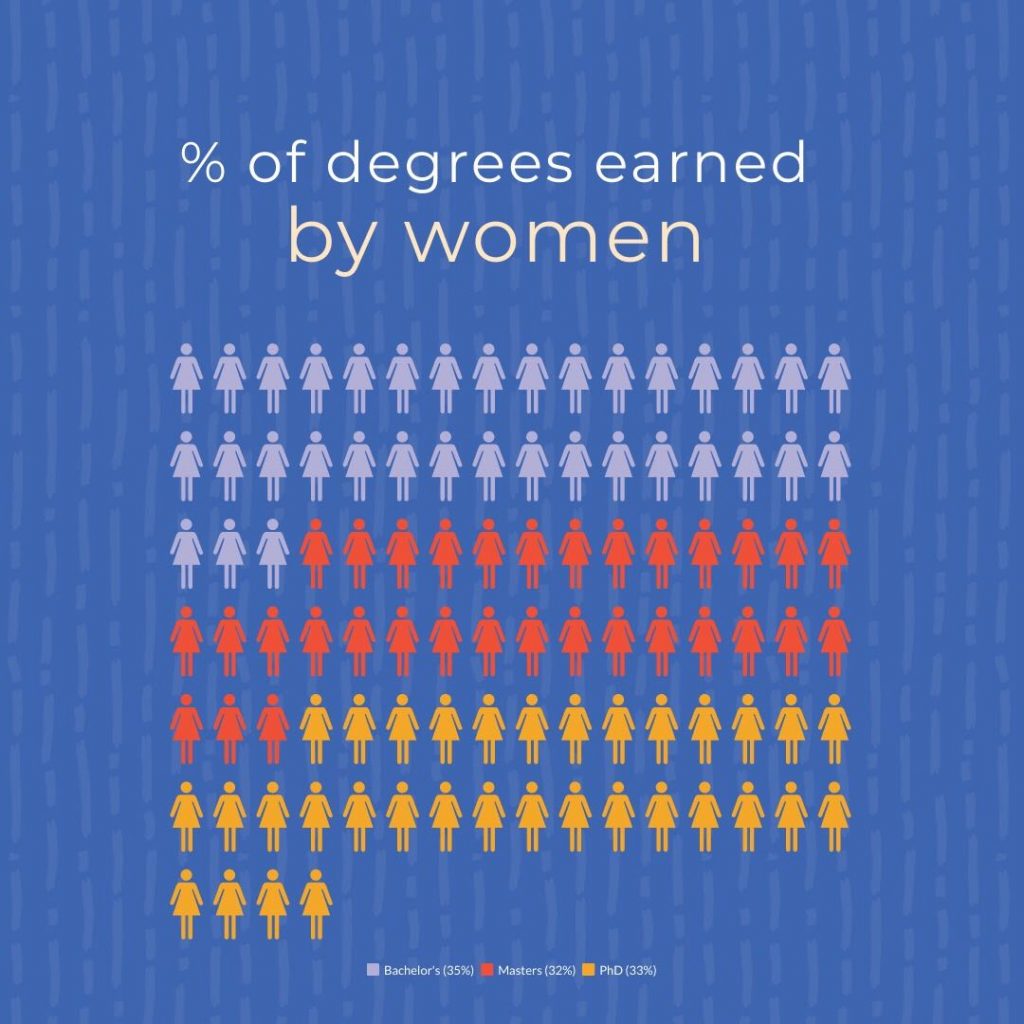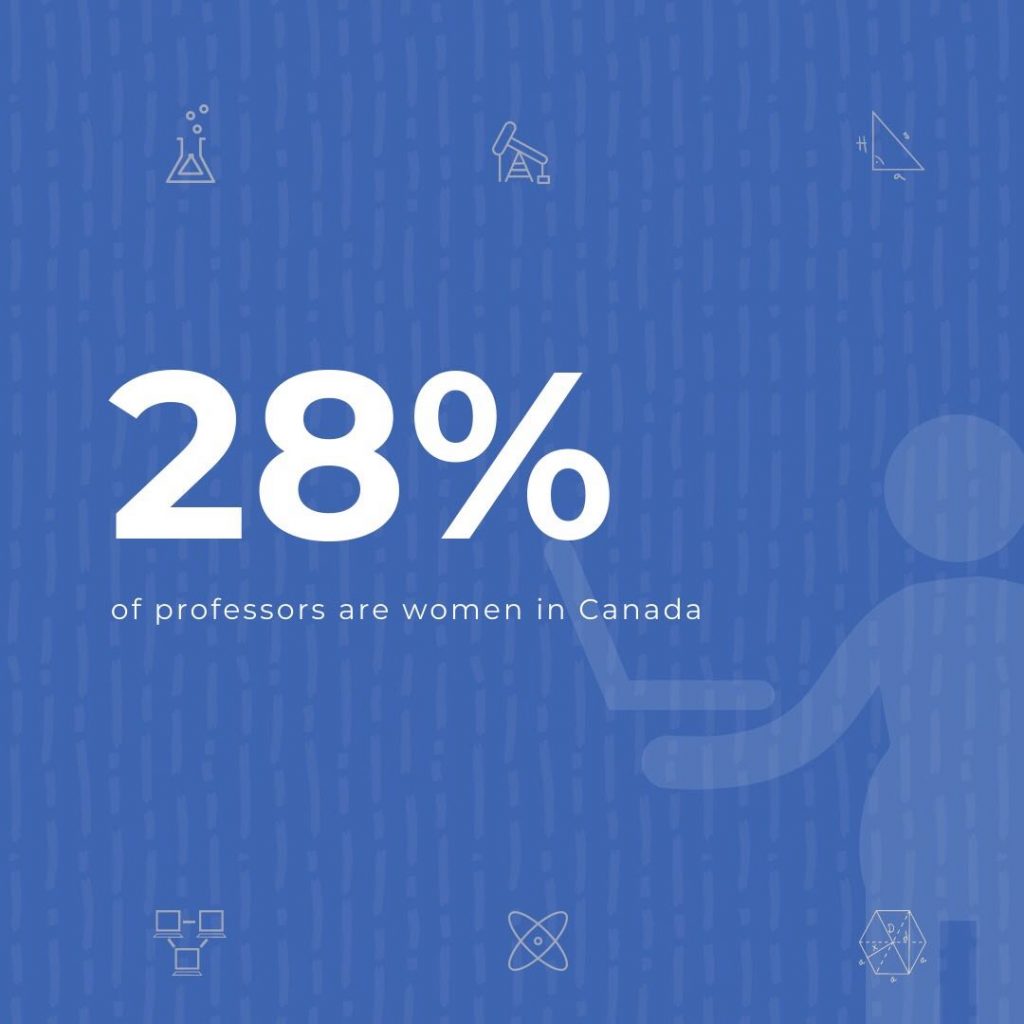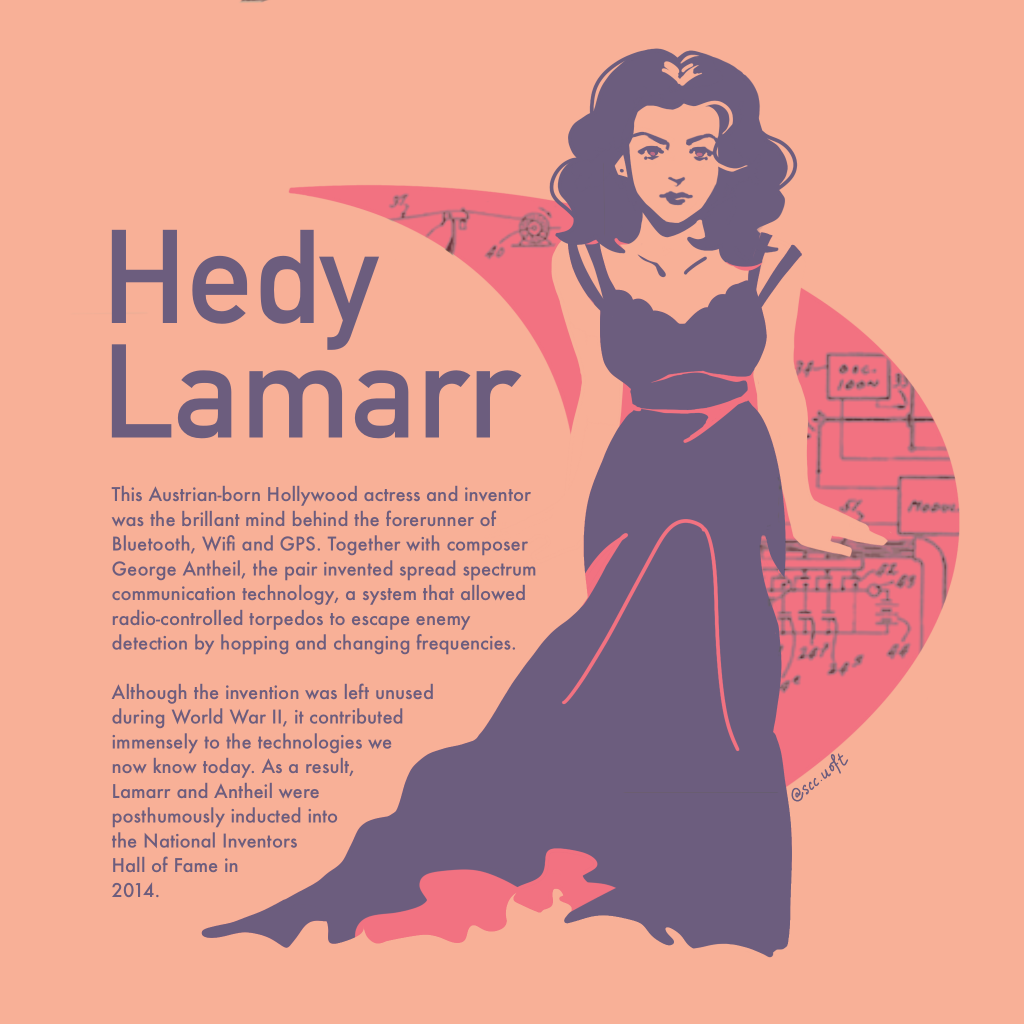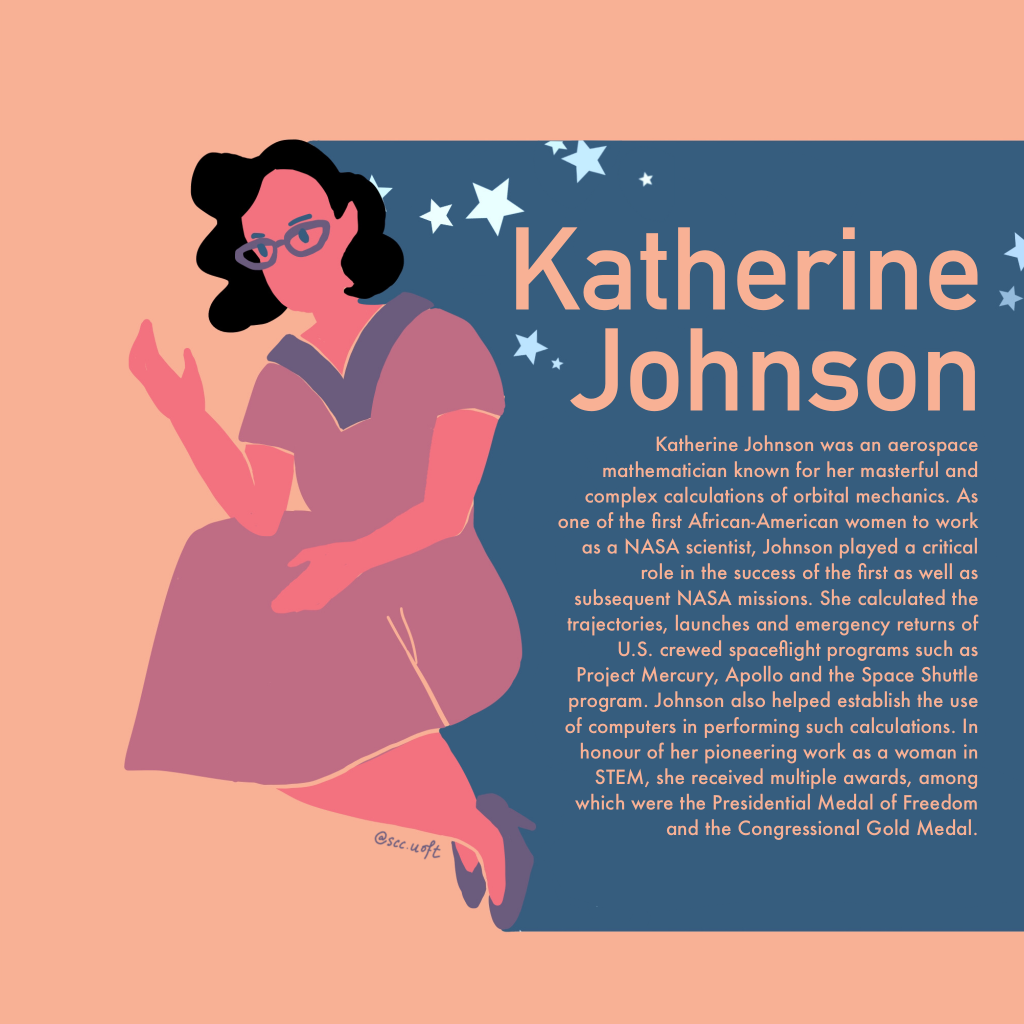A set of nine bite-sized infographics on women in science, technology, engineering and mathematics fields.
Originally created for 2020 International Women’s Day.
Exploring the Accomplishments of Women in STEM
Created by Anna Tram and Shanling Lei
Out of the 334 Nobel Prizes awarded, 20 were awarded to women for achievements in medicine, physics and chemistry.
What were some “firsts” in the field? Enter Antonia Novello, the first woman to be appointed surgeon general of the United States. And we cannot forget Mae C. Jamison, who became the first black woman to travel in space. And last but not least, Tu Youyou, the first Chinese woman to win a Nobel prize in physiology or medicine.
Did you know 3 female high school students designed an experiment that was chosen to test the effectiveness of antibiotics at the International Space Station? All female-STEM teams also made strides in autonomous vehicles as well as approaches to ocean plastic pollution.
Women in Academia
Created by Jenny Zhang and Jerrie Feng
In Canada, only 17% of women in STEM fields graduated with a degree in mathematics and computer science. Women in engineering trail right behind at 22%. The majority lie in the broad field of science and technology.
In the United States, about 30% of degrees in STEM fields across Bachelor’s, Master’s and PhD are earned by women.
Representation among all academic faculties are on the rise in Canada, with 41% of women holding a full-time teaching position in 2018-2019. Women are near parity across academic ranks except for professorship (28%).
Source: Statistics Canada 2018; Catalyst, Quick Take: Women in Science, Technology, Engineering, and Mathematics (STEM) 2019
Three exceptional women who advanced our knowledge in science
Created by Prima Zhao and Amy Zhang
The brilliant Hedy Lamarr was an Austrian-born Hollywood film actress and inventor. The Spread Spectrum Communication technology she developed with composer George Antheil became the forerunner of modern-day Bluetooth, WiFi and GPS technologies.
Katherine Johnson was one of the first African-American women to work at NASA as a research mathematician. Her complex calculations for the trajectories, launch windows and emergency returns of U.S. crewed spaceflight programs were crucial in the success of the first and subsequent NASA missions.
English primatologist and anthropologist, Jane Goodall, is best known for her expertise in chimpanzee research as well as habitat conservation and animal welfare activism. Her observations of free-living primates challenged long-standing beliefs of humankind as the only “toolmakers” in the animal kingdom.
